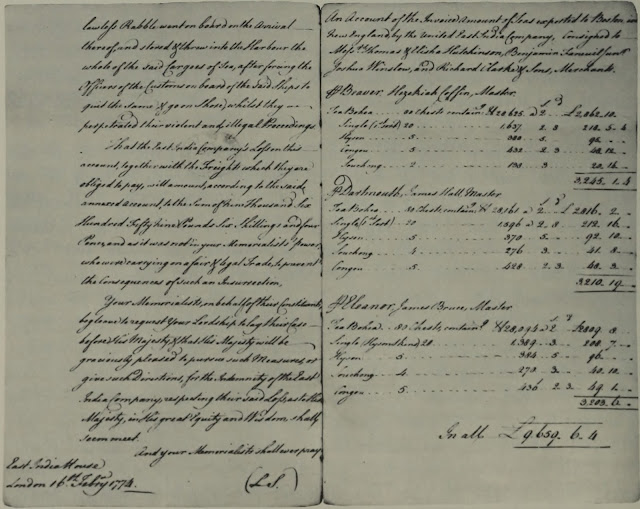The Second Boston Tea Party: Part I

The Second Boston Tea Party: Part I Detail of Philip Dawe's mezzotint "The Bostonians Paying the Excise-Man or Tarring and Feathering" (October 1774). This corner detail is the first known depiction of the destruction of tea in Boston Harbor. Who's to say if Dawe is depicting the first or the second, or both? On March 7, 1774 a cargo of tea was destroyed in Boston Harbor. The event—now known as the Second Boston Tea Party—is often relegated to no more than a footnote in American history (if even that). Even Joseph Cummins' book "Ten Tea Parties: Patriotic Protests that History Forgot" gives it no more than two paragraphs in the appendix. [1] While the Second Boston Tea Party certainly lacked the scale and notoriety of its namesake on December 16, 1773, it was nonetheless an important moment in the increasing tensions between Great Britain and the American Colonies. I'd like to offer here what I believe to be the most thorough telling of the story ...
